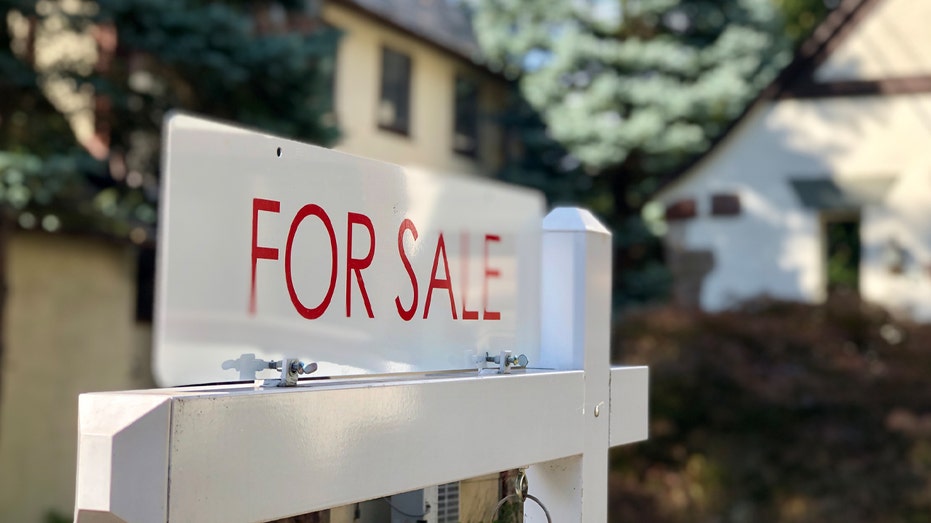Is current housing market slowdown similar to 2008 crash?
National Housing Conference CEO weighed in on housing slowdown on 'Cavuto: Coast to Coast'
National Housing Conference CEO warns 'slower period' ahead
David Dworkin argues housing affordability is the worst it's been is most people's lifetime.
National Housing Conference CEO David Dworkin stressed Monday that the current slowdown is "nothing like the last housing crisis," arguing that "all the major fundamentals are very different."
"The law of supply and demand is never repealed, so we have a very different situation where instead of having a demand-driven crisis, we’ve actually had a supply-driven crisis that has increased home values and home prices by a lot," Dworkin told "Cavuto: Coast to Coast."
He noted that in 2008 the market "was fueled by toxic mortgages and people were getting interest rates on a teaser basis that they couldn’t possibly repay."
For months, the housing market was buoyed by record-low interest rates at the same time that American homebuyers – flush with stimulus cash and eager for more space during the pandemic – started flocking to the suburbs.
HOME SALE CANCELLATIONS SURGE TO ANOTHER 2-YEAR HIGH AS BUYERS PULL BACK
Real estate broker discusses slowing housing market: 'Making a plan for the future is key'
Real estate broker Kirsten Jordan explains what homebuyers should do in the housing market as purchase activity decreases
But the interest rate-sensitive sector has started to cool considerably as the Federal Reserve moves to tighten its policy at the fastest pace in three decades in order to bring persistent inflation under control.
Policymakers already approved two consecutive 75-basis point rate increases in June and July and confirmed that another supersized hike is on the table in September.
Following the rate hikes, the average rate on a 30-year fixed mortgage – the most popular among new homeowners – climbed to nearly 6% in June, though they have since moderated. The average rate for a 30-year fixed rate mortgage hovered around 5.55% for the week ending Aug. 25, according to recent data from mortgage lender Freddie Mac.
That is significantly higher than just one year ago, when rates stood at 2.86%.

High home prices combined with the rapid rise in borrowing costs has pushed many entry-level homebuyers out of the market. (iStock / iStock)
Combined with high home prices, the rapid rise in borrowing costs has pushed many entry-level homebuyers out of the market.
A recent report from Redfin showed that home sale cancellations soared in July to another two-year high as buyers retreated from the market. About 63,000 home purchase agreements were called off in July, equal to 16% of homes that went into contract that month.
Real estate market 'slowly cooling' amid higher mortgage rates: Expert
Samantha DeBianchi, founder of DeBianchi Real Estate, recommends 'shopping out mortgage rates' as the 30-year fixed rate sits above 5%.
"Certainly we’re looking at a slower period, but we still have a lot of need out there, and housing affordability is the worst it’s been in most people’s lifetime," Dworkin noted.
Earlier this month it was revealed that the national median single-family existing-home price rose 14.2% annually to $413,500, surpassing $400,000 for the first time, according to the National Association of Realtors.
"In markets where you’re going to continue to have a steady demand — Florida may be one of those — then you’re to going to see a much smoother recessionary impact, which I think is what we really are dealing with here," Dworkin told host Neil Cavuto on Monday.
"And you’re also going to see in many markets that have not seen a huge increase, but have kind of been pretty normal, you’re going to have them remain largely so."
CLICK HERE TO READ MORE ON FOX BUSINESS
"In the most inflated markets you’re going to see prices come down, but I think because the demand is so high and supply is so short, we still are going to have a muted response," he continued.
"Now, that’s a real problem for Chairman Powell, because one of the ways he controls inflation is by raising rates and if the supply remains out of match with demand, then the big tool in his toolbox is definitely blunted."























